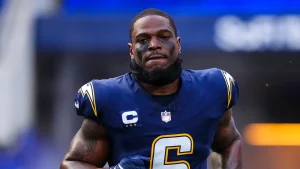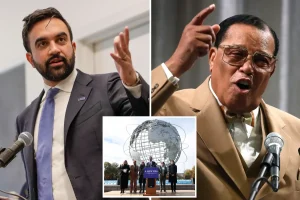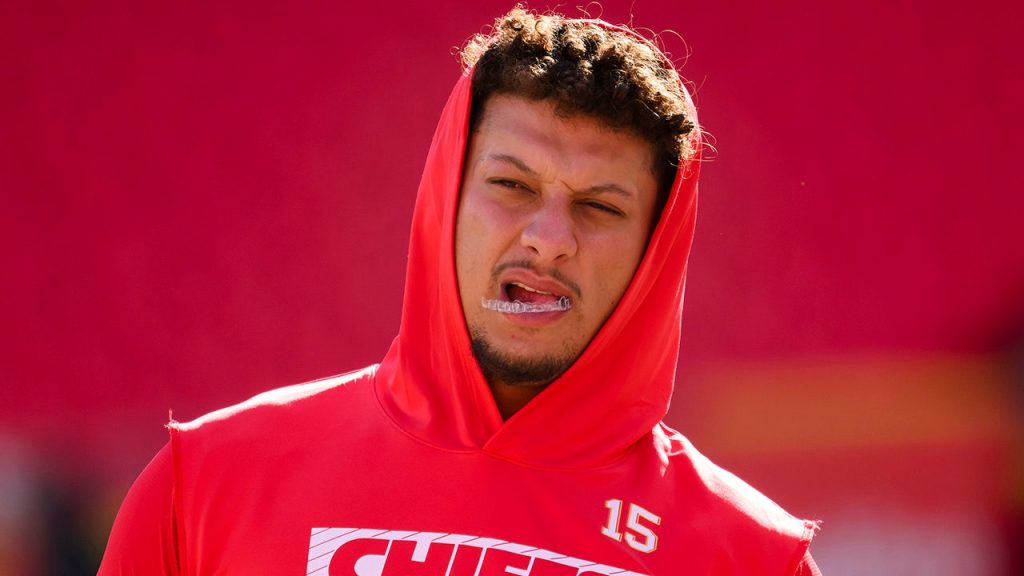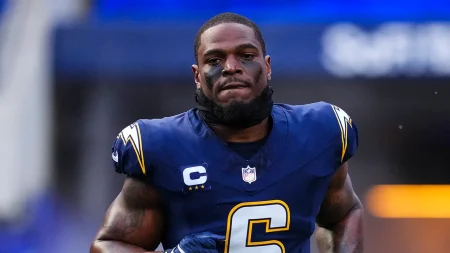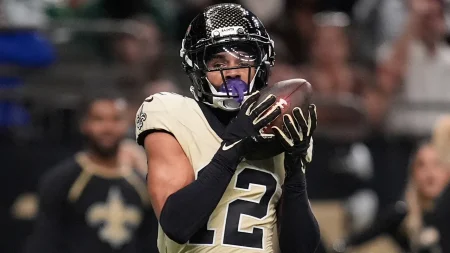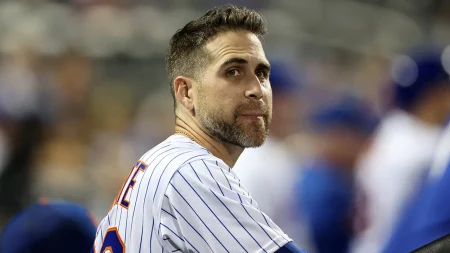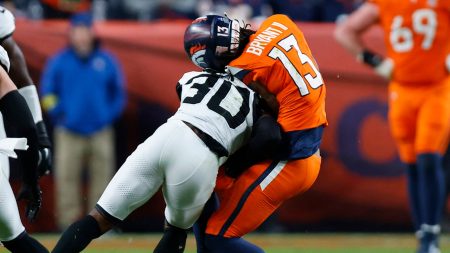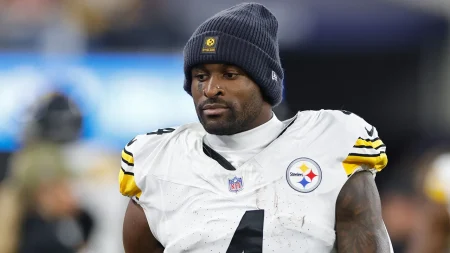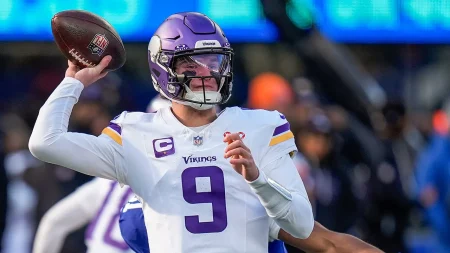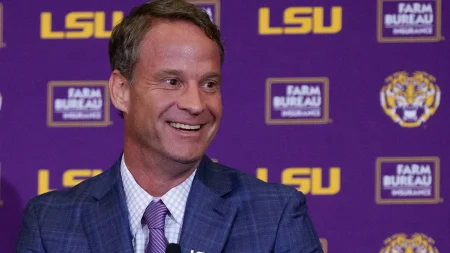The Kansas City Chiefs’ victory over the Houston Texans in the Divisional Round of the playoffs was marred by controversy surrounding the officiating, particularly two penalties called against the Texans for roughing the passer on Chiefs quarterback Patrick Mahomes. These calls ignited a firestorm of criticism from fans and analysts, who accused the referees of favoring the Chiefs and Mahomes of embellishing contact to draw penalties. This narrative dominated post-game discussions and spilled over into the following week, prompting Mahomes to address the accusations and the broader issue of officiating scrutiny in a subsequent interview.
The first controversial call occurred in the first quarter when Texans edge rusher Will Anderson Jr. was flagged for roughing the passer after contacting Mahomes in the chest area following an incomplete pass. The second incident transpired in the third quarter during a Mahomes scramble. As Mahomes navigated through defenders and opted to slide, contact was made, resulting in another unnecessary roughness penalty against the Texans. These calls fueled accusations of preferential treatment towards Mahomes and the Chiefs, with many believing the contact did not warrant penalties.
Following the game, Texans players and head coach DeMeco Ryans voiced their displeasure with the officiating, suggesting bias towards the Chiefs. This sentiment resonated with many fans, who took to social media to express their outrage. Adding fuel to the fire was an incident in the fourth quarter where Mahomes fell to the ground after seemingly minimal contact from a Texans defender. This action, perceived by many as a blatant “flop” designed to draw a penalty, drew sharp criticism from fans and even seasoned commentators like Troy Aikman. Aikman criticized Mahomes’ attempt to manipulate the game by slowing down and inviting contact rather than simply running out of bounds.
In his Tuesday interview, Mahomes acknowledged the controversy surrounding the officiating and the accusations of flopping. While maintaining that the referees were doing their best to make the right calls, he admitted that he might have overdone it on one particular play along the sideline, where he fell without drawing a flag. He understood the referees’ decision not to penalize the Texans on that play and conceded that he perhaps shouldn’t have tried to embellish the contact.
Mahomes also addressed the specific instance of falling to the ground in the fourth quarter, explaining that his intention was not to draw a penalty but rather to avoid a potentially harmful hit from an oncoming defensive lineman. He emphasized his desire to protect himself from unnecessary contact and stay healthy for the remainder of the game. This explanation, while seemingly reasonable, did little to quell the ongoing debate surrounding his actions and the overall perception of preferential treatment by the officials.
The controversy surrounding the officiating in the Chiefs-Texans game underscores the inherent challenges and complexities of officiating in a fast-paced, high-impact sport like football. While referees strive to make the correct calls in real-time, subjective interpretations and the inherent limitations of human perception inevitably lead to disagreements and accusations of bias. The incident also highlights the increasing scrutiny placed on star players like Mahomes, whose every move is analyzed and dissected by fans and media, often leading to polarizing opinions and passionate debates. Despite the controversy, Mahomes remains focused on his team’s ultimate goal: winning the Super Bowl. He chooses to tune out the noise and concentrate on his performance on the field, leaving the officiating debates to others.
